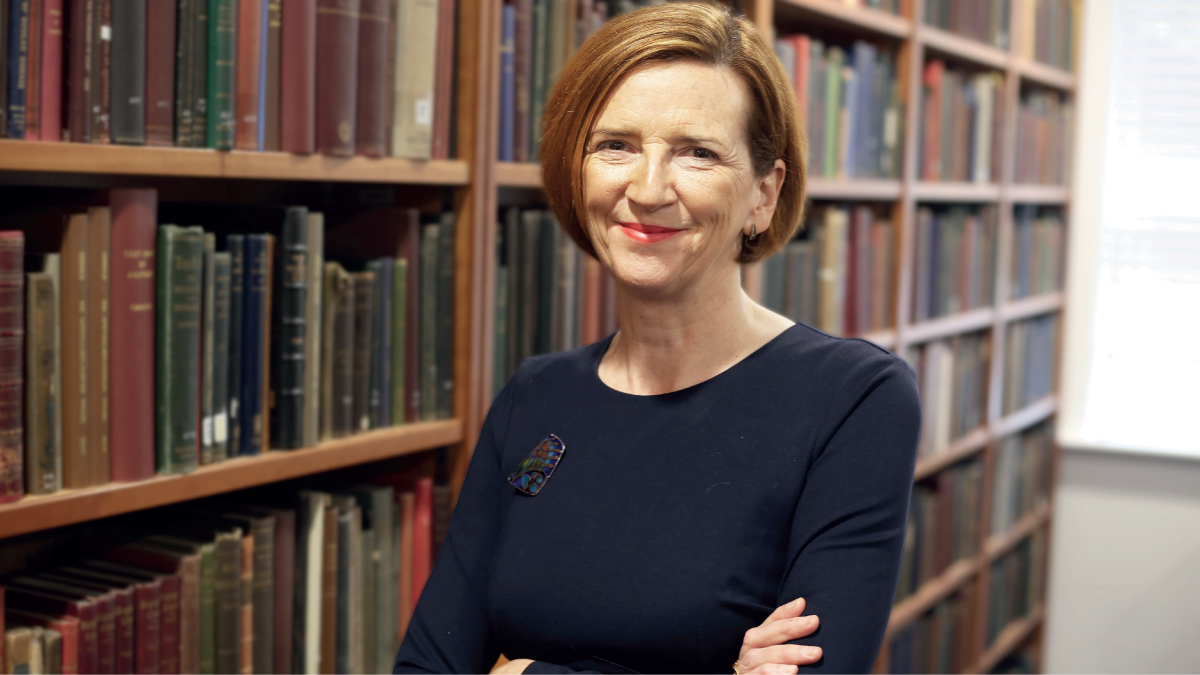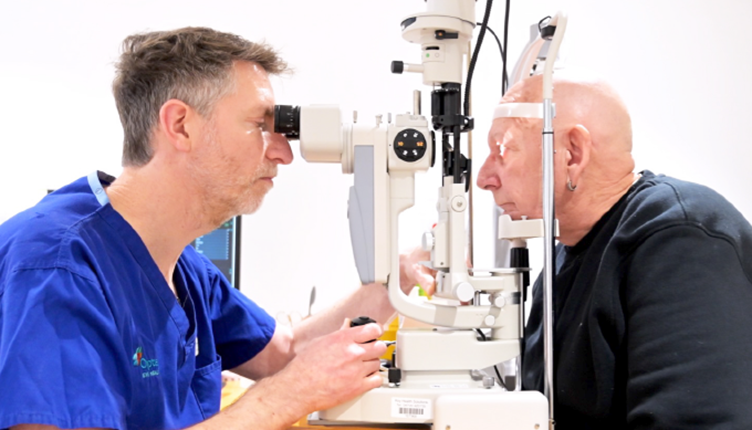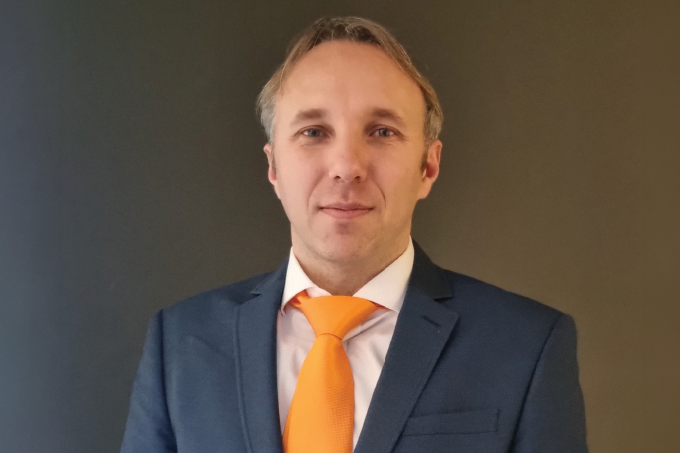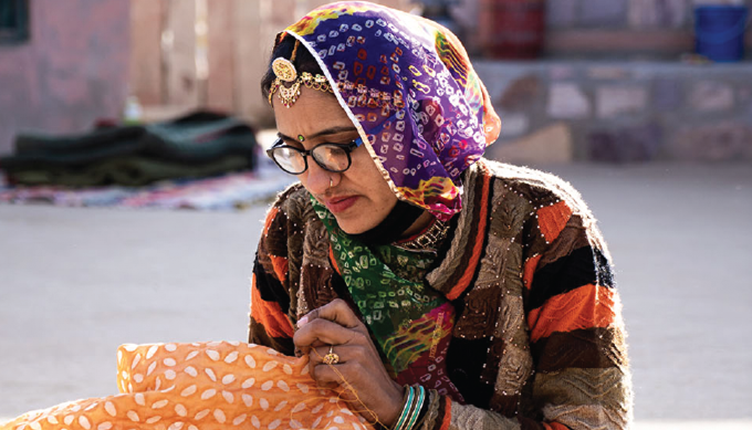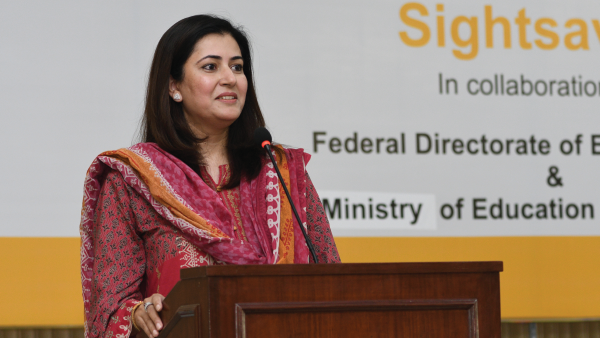Calling for Connection: The College of Optometrists’ Gillian Rudduck
The College’s new President discusses the importance of bringing together the different elements of UK optometry to achieve a truly joined-up service
Can you outline your background in the industry?
After studying at Aston University, I did a pre-reg in a small multiple. I then returned to Aston as clinical demonstrator in a teaching role, which allowed me to do my PhD in visual development using electrodiagnostics. I looked at how children’s color vision developed from birth and in the first year of life. It was a great opportunity that allowed me to develop my research background and do some clinical teaching as well. During that time I also did some locuming in independent and multiple practices, and some sessions in hospital optometry. I met many amazing clinicians who became quite influential in my career. Post-PhD, I moved mostly into secondary care and hospital optometry, which is where I am now.
How do you think this experience will help you in your role as president of The College of Optometrists?
I’ve had the opportunity to work with The College of Ophthalmologists for some time, as well as NICE, the Care Quality Commission, the Association of Optometrists, and the General Optical Council. So I’ve got a broad understanding of eye care – and an overall view of where optometry sits within the bigger healthcare picture.
But most important is the most obvious thing – that I am actually an optometrist. I still do a day job. I’m a clinician. I have patient interactions, I work within a team of optometrists. I think that working “at the coalface” is an important aspect of the presidency. Having a senior clinical role but also having worked in a range of settings and understanding the pressures of delivering eye care, the funding issues and so on is very important.
Of course, different presidents bring different experiences. It’s also about building on the legacy of my predecessors and maintaining continuity, taking forward the work that the College is engaged in.
What are your priorities for your first months in the role?
One of the strengths of the College’s board is that we all come from different places. We have representatives from all four nations. The priority for me is meeting with senior partners from health services all across the UK to raise awareness about the vital role the optometrist plays in the challenging healthcare landscape ahead, with an aging population and increased demand in healthcare.
What would you like to see from a new government when it comes to UK optometry?
We need to make sure that the role of the optometrist is properly recognized and utilized. We’ve got an amazing skillset in optometry, but it needs to be commissioned and funded so we can deliver for patients. The backlog is huge. The devolved governments are moving eye care forward and doing really good work, but England is lagging behind. More and more patients in England are losing their sight, with devastating consequences. I would like to see a government committed to establishing optometrists across the UK as that first-contact practitioner for eye care – and making sure that the optometrists of the future have the support and education to deliver at scale. We need optometrists working at the top of their game.
We also need to sort out the IT infrastructure. We currently have different systems that are not talking to each other. The only way to make a joined-up system work is to have consistent IT and digital connectivity; right now, that is a huge barrier. If you haven’t got a joined-up service, it is really difficult to share information between the different parts of the sector and patients get lost in the gap.
If you went to your high street optometrist, for example, and had an OCT scan, that OCT will not be examined in the same detail at the hospital, so you’re already losing information. The hospital then has to repeat the same measurements, and tasks are duplicated. Or consider a glaucoma patient, who has been looked after by a hospital for a long time, who has a whole series of test results stored in the hospital medical record. If we try to transfer that patient’s care out to an optometrist in practice, there’s no way of transferring the patient data with them. The medical records just get lost.
The College of Optometrists has been doing some work in this area with The Royal College of Ophthalmologists, developing an eye care-specific set of DICOM (Digital Imaging & Communications in Medicine) standards. But this initiative needs continued funding and support.
How have you seen optometry change in the course of your career?
For the optometrist, I think the speed of technology development has been absolutely breathtaking; it has vastly expanded the breadth of skills that optometrists are now able to use. We’re still evolving as a profession, we’re building on the things that we’ve been trained to do, and I think these aspects will continue to evolve at a lightning speed.
But we mustn’t lose sight of what we bring to eye care: a caring, human side. We can go virtual, we can go digital, but, at the end of the day, there still needs to be human interaction and that’s what optometrists are very good at.
The New Optometrist Newsletter
Permission Statement
By opting-in, you agree to receive email communications from The New Optometrist. You will stay up-to-date with optometry content, news, events and sponsors information.
You can view our privacy policy here
Most Popular
Sign up to The New Optometrist Updates
Permission Statement
By opting-in, you agree to receive email communications from The New Optometrist. You will stay up-to-date with optometry content, news, events and sponsors information.
You can view our privacy policy here
Sign up to The New Optometrist Updates
Permission Statement
By opting-in, you agree to receive email communications from The New Optometrist. You will stay up-to-date with optometry content, news, events and sponsors information.
You can view our privacy policy here
